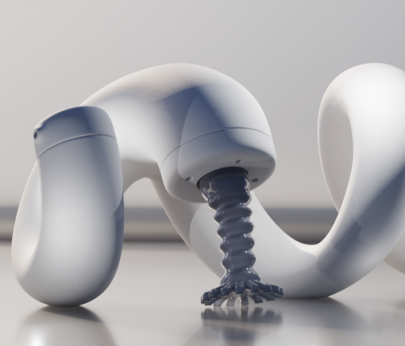National research programme Robotics for society (PEPR O2R)
Thinking of a more adaptable robotics, both socially and environmentally, is the challenge proposed by the Organic Robotics program. This program aims to rethink the robotics sector in order to create a new generation of robots capable of fluid and natural interactions with users, social adaptation in their interactions, and providing services that are responsive and reliable for citizens.
Organic Robotics combines humanities, robotics, and engineering sciences. This multidisciplinary approach aims to develop machines that serve humanity and society first.
|
The Organic Robotics program proposes to implement socially adapted robotics, in its principles, behavior, performance, and usage, and open to the complexity of societal challenges. This exploratory research program aims to refound, by integrating the contributions of different disciplines, methodologies, action and interaction behaviors, cognitive functions, learning capabilities, and breaking with current robotic technologies and their limitations.
The Organic Robotics program marks a turning point in robotics to create a new generation of robots capable of fluid and natural interactions with users, social adaptation in their interactions, and accompanying technological transitions of societies by providing services that are adapted, responsive, and reliable for citizens. To achieve these objectives, this research program dedicated to the creation of organic robots combines robotics and social sciences communities. This interweaving of disciplines aims to develop a new generation of robots serving humanity and stimulating, in a prospective manner, a more global reflection on the relationship between robotics and society. Rethinking uses and the relationship between robotics and society through a reflexive approach is at the heart of the program.
Three scientific challenges are addressed in this project through a multidisciplinary approach:
- Identify the determinants of social adaptation of robots and their links with their behavior and design.
- Create integrated material and software architectures for robots, allowing embodied intelligence and robustness in the face of complexity in their exercise and usage environments.
- Equip robots with capabilities for fluid interactions with humans.
The economic, environmental, and societal impacts of robotics are numerous. Efforts will focus in the short term on the healthcare sector and more broadly on personal assistance. Progressively and in collaboration with social sciences, use cases will open up to other application domains that remain to be defined. The program will be organized around the challenges through support for targeted projects and research teams, open and multidisciplinary research projects, prioritizing collaboration between robotics and social sciences.
The Maison des Humanités Potentielles, a specific project of the program's governance, aims to be a catalyst between humanities, critical approaches to technological and robotics challenges, art, and design to stimulate more adapted technological imaginaries and think about co-adaptation and co-evolution processes between bodies, technology, and environment.
En savoir plus
- Quand les robots s’adapteront à l’être humain, interview de Philippe Fraisse dans CNRS Info (17/01/23)
PEPR O2R | Un programme de recherche pour intégrer les robots à la société
Comment bien cohabiter avec les robots ? C'est la problématique posée par ce vaste programme de recherches financé dans le cadre du plan France 2030 et doté de 34 millions d'euros sur 8 ans. Parmi les pistes explorées par ce programme de recherche : le développement de machines pouvant s'adapter aux besoins de chacun ou encore enseigner des règles sociales aux robots afin de faciliter les interactions humain/machine. La robotique fait l'objet d'une course technologique et industrielle internationale. Ce PEPR doit permettre à la France et à l'Europe de rester compétitives sur ce secteur.
